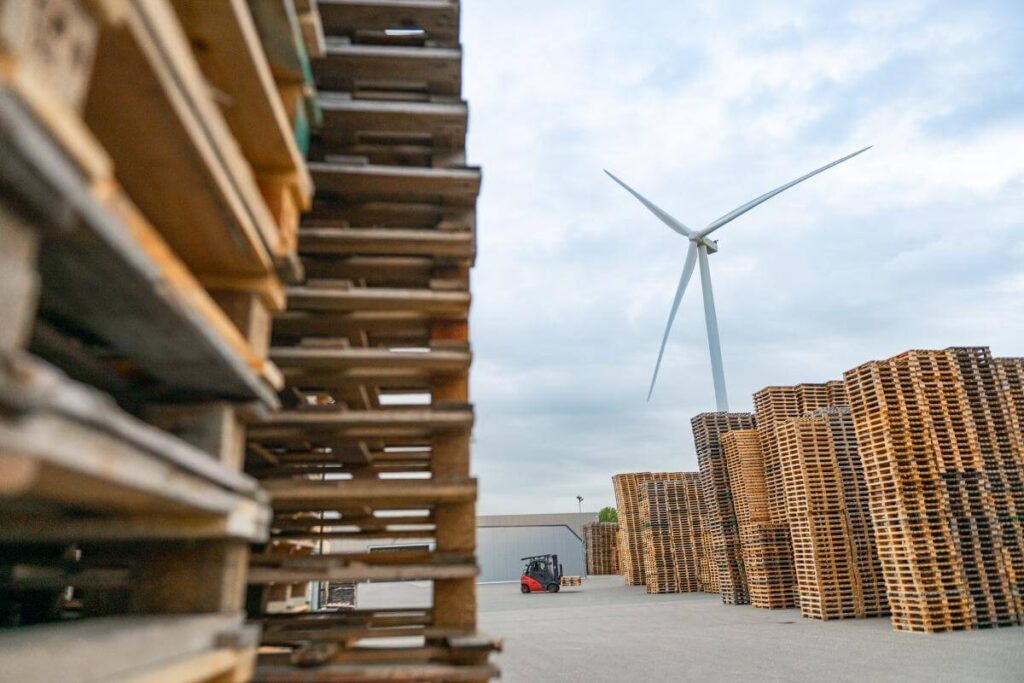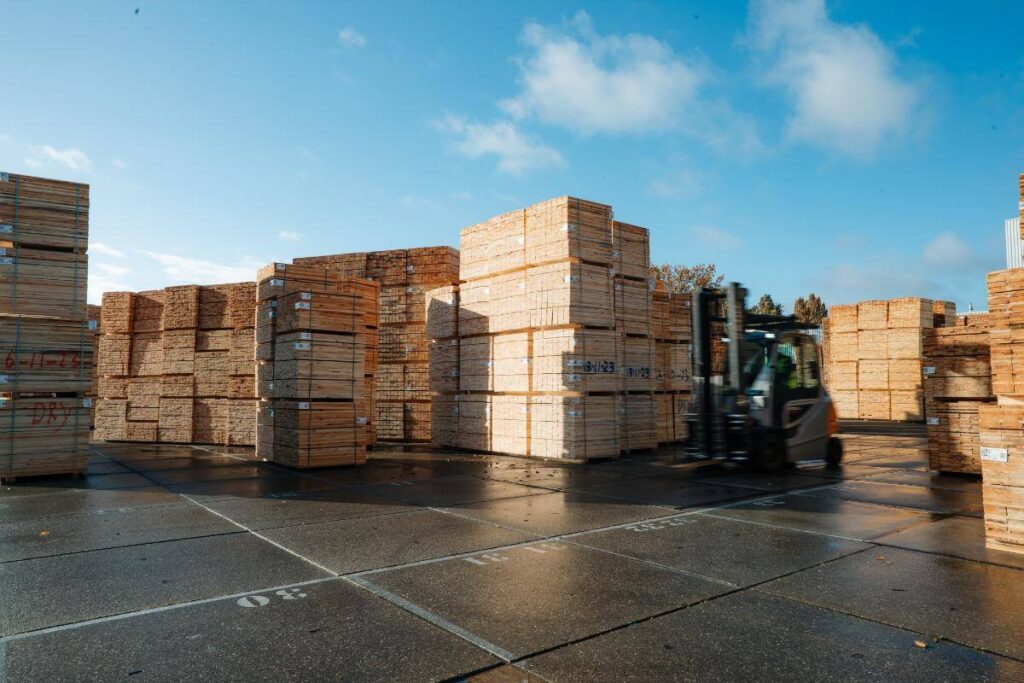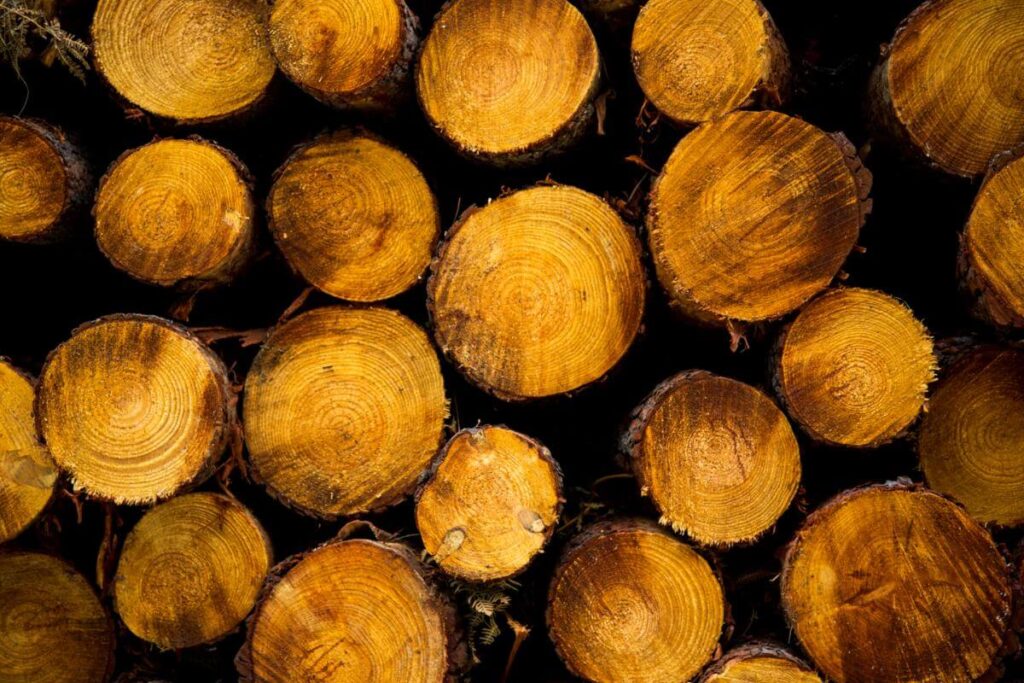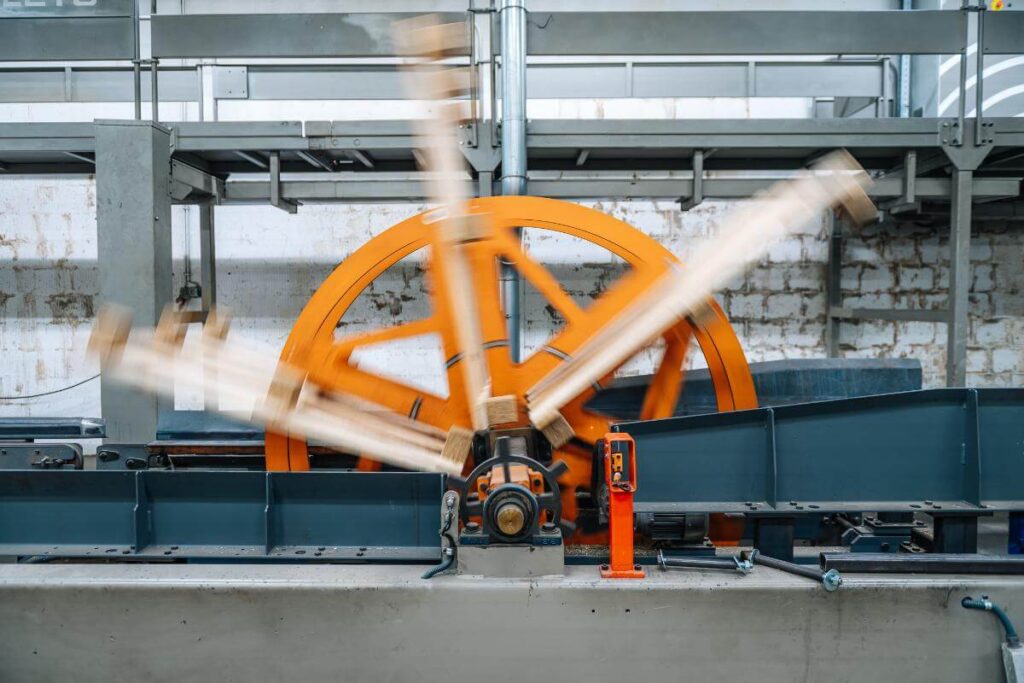
Wooden pallets owe a low environmental footprint to biogenic properties, which result in reduced emissions throughout their lifecycle. Life cycle assessments (LCAs) highlight their positive impact on carbon balance, making them the eco-friendly choice.

Wooden pallets play a crucial role in carbon management, as their circular lifecycle—including conversion to wood chips at the end of their use—supports carbon neutrality by storing approximately 0.8 tons of CO2 per cubic meter of wood. Research underscores variations in raw material requirements and the global significance of pallet management strategies like single-use, buy/sell, and pooling, which influence factors such as carbon footprint, resource use, and recycling potential (link).

Wooden pallets help reduce greenhouse gas emissions, even at the end of their lifespan. Even when not converted in wood chips, the energy produced from burning waste wood offsets emissions from non-renewable energy sources. With a net impact of -16 kg CO2 equivalent per pallet lifecycle, wooden pallets are a strong ally in combatting climate change.

More than 90% of the wood used in European pallet production comes from sustainably managed forests. Certification systems like PEFC ensure that biodiversity is protected and ecological, economic, and social functions of forests are preserved. Forest growth outpaces harvesting, ensuring the long-term availability of wood resources.

Wooden pallets are a perfect fit for circular economy models, with their long lifespan, repairability, and recyclability. Most pallets can last well up to 10 years and support multiple trade cycles, reinforcing their value in sustainable supply chains.



Follow us
All rights reserved
© 2025 - S.P.A.
Sustainable Pallets Association gebruikt cookies om informatie over jouw bezoek te verzamelen en te analyseren. Lees meer.